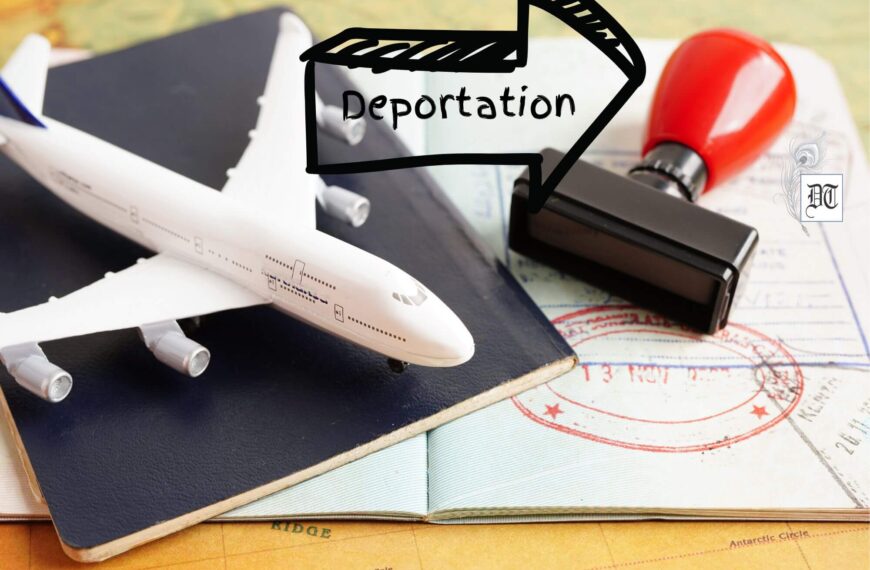Ahead of Justin Trudeau’s summit-level talks with the PM Narendra Modi, his dinner invitation to Khalistan terrorist Jaspal Atwal by Canadian High Commissioner raked in much controversy and debate. Trudeau has had a soft corner for the Sikh community since the day he came to power in the year 2015. Here’s a report by Navodita, our Associate Editor, in the weekly column, exclusively for Different Truths.
As Justin Trudeau is on a visit to India with his family, it seems his India trip has been far from controversy. Ahead of his summit-level talks with the PM Narendra Modi, his dinner invitation to Khalistan terrorist Jaspal Atwal by Canadian High Commissioner raked in much controversy and debate. Moving swiftly as a damage-control exercise, high commissioner Nadir Patel cancelled the invite for the dinner, while the MEA said it will ascertain how Atwal entered India.
The cancellation of the dinner invite comes at a time when Trudeau’s approach to the Khalistan movement is being criticised by many, including Punjab chief minister Amarinder Singh. Trudeau, on his part, had assured Singh that he did not support separatism in India or elsewhere. However, Atwal had been convicted of trying to kill the then Punjab minister Malkiat Singh Sidhu in Vancouver in 1986.
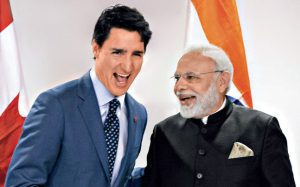 Canadian PM Trudeau, however, has had a soft corner for the Sikh community since the day he came to power in the year 2015 heading the Liberal Party since 2013. He apologised in the House of Commons for the Komagata Maru incident in 1914, in which hundreds of Sikh, Muslim and Hindu passengers were denied entry to Canada and forced to return to an uncertain and ultimately violent fate in India.
Canadian PM Trudeau, however, has had a soft corner for the Sikh community since the day he came to power in the year 2015 heading the Liberal Party since 2013. He apologised in the House of Commons for the Komagata Maru incident in 1914, in which hundreds of Sikh, Muslim and Hindu passengers were denied entry to Canada and forced to return to an uncertain and ultimately violent fate in India.
The SS Komagata Maru was a ship that travelled from Hong Kong to Vancouver in 1914, carrying economic migrants who did not like their living conditions back in India. The Komagata Maru incident was an incident in which the Canadian government denied their entrance to enter Vancouver. Upon reaching Vancouver, the Komagata Maru was denied entry with all its passengers due to the exclusion law set by Canada as a way to keep out Asian immigrants. The Asian Exclusion Act was a law that said for a ship to dock in Canada, the ship would have to make a continuous journey from where it started all the way to the country. This meant that ships would not be able to make a detour if they wanted to be able to enter Canada, which would be nearly impossible for the Komagata Maru. The Komagata Maru incident was where the ship made a long journey, that stayed at the docks for two months with nowhere else to go and when they were sent back to India a terrible surprise was waiting for them that violated at least three human rights in the end. When the Komagata Maru reached Calcutta to drop off the passengers, they were stopped by a British gunboat. The ship was then taken to a place called Budge Budge in Calcutta where they tried to arrest 20 or more men they saw as leaders. When the 20 or more men started to resist the arrest, gunfire from the British gunboat started to break out and at least 19 people were killed. Some of them escaped, while ot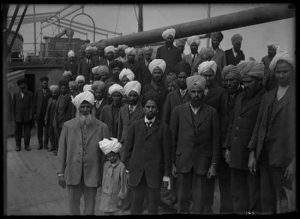 hers were arrested and imprisoned in their village and kept there for the duration of the First World War.
hers were arrested and imprisoned in their village and kept there for the duration of the First World War.
The Komagata Maru incident is significant because it shows a lot about how Canada felt about Asian immigrants in the 1910s. It shows that Canada did not like Asian immigrants in the 1910s or else they would not have an Asian Exclusion Act knowing that people from Asia cannot make a continuous journey without stopping. This incident wasn’t only the fault of Canada but also Britain. Both countries violated the passengers’ rights, even though those rights had not become officially recognized yet by international statutes like the Universal Declaration of Human Rights.
Trudeau, after coming to power, said in the House of Commons, “Canada does not bear alone the responsibility for every tragic mistake that occurred with the Komagata Maru and its passengers, but Canada’s government was without question responsible for the laws that prevented these passengers from immigrating peacefully and securely, for that, and for every regrettable consequence that followed, we, are, sorry.”
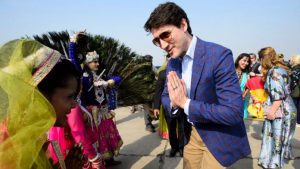 Trudeau had unveiled the most diverse cabinet so far in the country where 15 of 30 senior ministerial posts have been awarded to women and touts a significant presence for the country’s ethnic minorities. Canada has the world’s most-Sikh cabinet with Harjit Sajjan as Defense Minister, Amarjeet Sohi as Minister of Infrastructure and Navdeep Bains and Bardish Chagger as ministers too. Punjabi is not the third language of Canada’s parliament where 19 Indians were voted into the 338-seat House of Commons in Ottawa in federal elections.
Trudeau had unveiled the most diverse cabinet so far in the country where 15 of 30 senior ministerial posts have been awarded to women and touts a significant presence for the country’s ethnic minorities. Canada has the world’s most-Sikh cabinet with Harjit Sajjan as Defense Minister, Amarjeet Sohi as Minister of Infrastructure and Navdeep Bains and Bardish Chagger as ministers too. Punjabi is not the third language of Canada’s parliament where 19 Indians were voted into the 338-seat House of Commons in Ottawa in federal elections.
Earlier, Narendra Modi had made a visit to the country generating business worth more than 1.6 billion Canadian dollars. Sixteen commercial agreements and announcements were made by Canadian and Indian companies and organisations during PM Modi’s visit. The meeting in India can be seen as a continuation of the series of talks that began earlier. Surely, optimism would help.
©Navodita Pande
Photos from the Internet
#CanadianPrimeMinister #IndianPrimeMinister #NarendraModi #JustinTrudeau #HouseOfCommons #Canada #Britain #WorldWarl #GlobalGanter #DifferentTruths

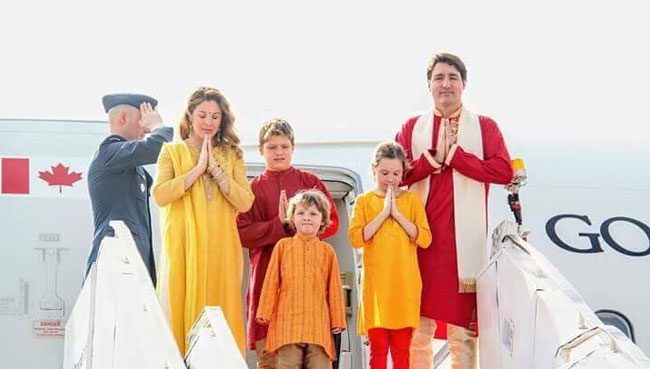





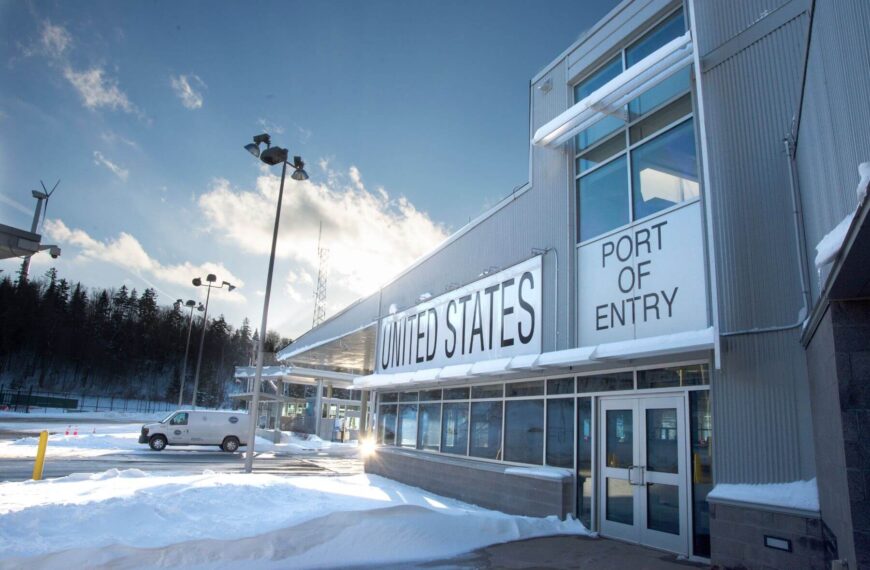
 By
By
 By
By